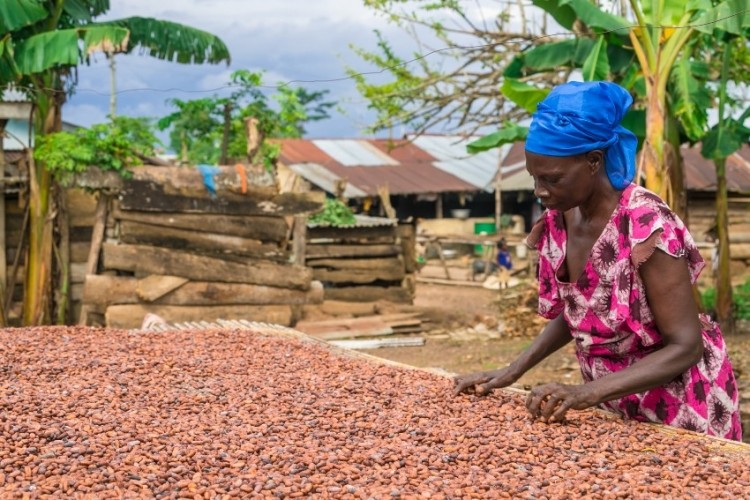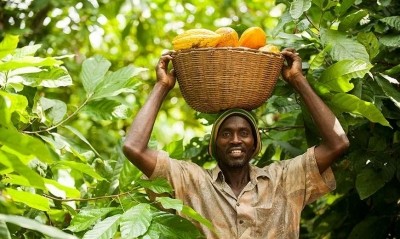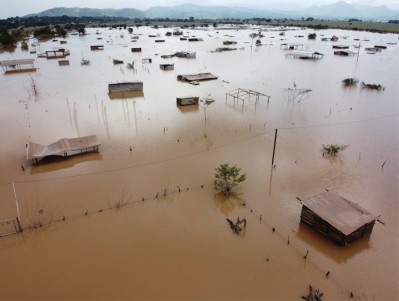Sustainability
New Fairtrade report highlights how cocoa sector can help farmers progress toward living incomes

Supported by a grant from the Open Society Foundations, the report, What Makes Co-operatives Work?, outlines recommendations for Fairtrade and the cocoa sector at large, developed after researchers conducted an in-depth study into the functions of cooperatives and heard feedback from two case study cocoa cooperatives in Ghana.
The recommendations include proposals for how better to identify obstacles to improving farmers’ experiences within co-operatives, and how to support co-operatives in their journey to scale impact for members and beyond, to sharecroppers and farm owners’ families.
This report comes at a particularly important time for the Fairtrade system -- Brian Doe, Programme Development Manager at the Fairtrade Foundation
This understanding is a critical addition to how the sector can work through farmer-led structures to ensure successful living income programming and realise progress towards improved incomes, rights and resilience for cocoa farmers, Fairtrade believed.
The report, commissioned by the Fairtrade Foundation, was written by Switzerland-based researcher Dafni Skalidou, supported by researcher Gladys Nketiah and Fairtrade Africa’s cocoa team, both in Ghana.
The author was asked to provide an analysis of the co-operative sector in Ghana and gather farmer feedback on their experiences with co-operatives, in order to understand how co-operatives work and how they create and distribute benefits.
The research was carried out through focus group discussions with cocoa farmers in Fairtrade’s West Africa Producer Network, as well as interviews with a range of relevant stakeholders in the sector, including Fairtrade cocoa co-operatives.
Next steps
Following feedback from participating co-operatives, the research offers a series of next steps for both active co-operatives in Ghana as well as for the external stakeholders who seek to support them, Fairtrade said.
Among the recommendations are a call to focus on: the inclusion of sharecroppers in training activities and incentives provided by co-operatives; the creation of better value chain guidelines for more coordinated and diversified external support; and the facilitation of better co-operative networks and platforms that include space for co-operatives to address internal challenges confidently as they arise.
The report also recommends investment in leadership skills among young people in cocoa farming communities, in order to prepare more actively for the next generation of co-operative leadership.
There is also a call for the need for the sector to prioritise governance strengthening that will build a solid foundation for co-operatives, before making large investments in operational or programmatic activities.
Programme Development Manager at the Fairtrade Foundation, Brian Doe, said: “This report comes at a particularly important time for the Fairtrade system: 2021 was a critical reflection point for Fairtrade’s growing, and often new, programmatic partnerships to strengthen our certified cocoa co-operatives in West Africa beyond advocating for increased sourcing on Fairtrade terms.
“Last year, Fairtrade International commissioned an external evaluation of our West Africa Producer Network’s ‘West African Cocoa Programme’. This found clear evidence that small-scale producer organisations are more effective and resilient as a result of these tailored programme partnerships with Fairtrade. However, there is still work to be done to unlock long-term outcomes in income, rights and climate resilience sought by farmer communities.”
Climate change and volatile cocoa incomes
The Fairtrade Foundation said the paper presents an analytical tool designed to help co-operative structures evaluate their own ability to create impact for their members and cocoa farming households. It notes that understanding the nature of a co-operative’s value to farmers – as well as possible obstacles to positive impacts – directly correlates with how producer organisations will help farmers navigate mounting challenges for smallholder farmers, such as climate change and volatile cocoa incomes.
‘This research highlights foremost the need for more of this type of critical analysis on the dynamics of how a particular co-operative structure, through its unique history, trajectory and relationships with external actors over time, can succeed in bringing tangible value to the members that join it,’ said Doe.
- The report is available to download here





